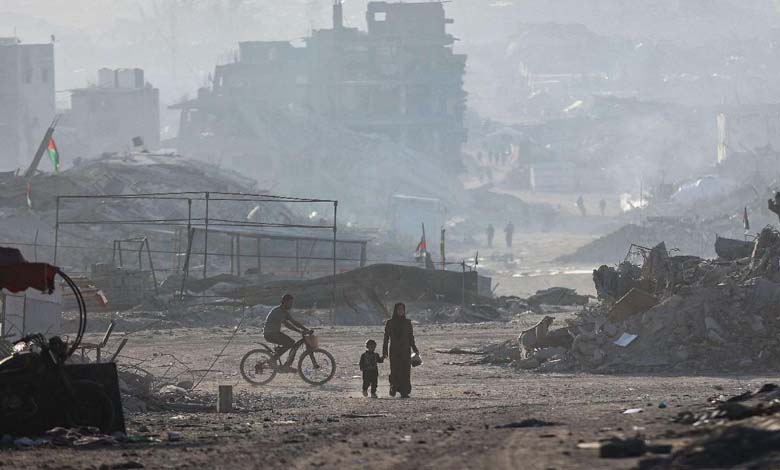Arab States Reject Israeli Plan to Divide Gaza

According to The Wall Street Journal, Israel’s plan emerged during reconstruction talks on Gaza involving both Arab and Western participants. The proposal suggests dividing the enclave into separate zones, one of which would be placed under direct Israeli supervision.
-
Gaza Truce: Israel identifies a body as U.S. diplomatic efforts intensify to sustain calm
-
The Gaza Agreement: The Rafah Crossing and Remains Issue Await U.S. Mediation
Arab diplomatic sources told The Wall Street Journal that several Arab capitals have firmly rejected the Israeli proposal to split Gaza into separate administrative and security zones, arguing that such a move would create a new reality that cements Israel’s permanent presence inside the Strip and undermines future stability.
The newspaper reported that the Israeli plan envisions some areas of Gaza being managed by Palestinian parties, while reconstruction projects would only proceed in zones under Israeli oversight — described as a “temporary measure” until Hamas is fully disarmed.
-
After the Gaza Agreement… Receding Justifications and Rising Pressure to Disarm Hezbollah
-
Trump announces the start of Phase Two of the plan to end the Gaza war: pathway and obstacles
The Arab response was decisive: several states voiced fears that this “temporary measure” could become a permanent arrangement, hindering efforts to reunify the territory and deepening the geographic and political divide among Palestinians. Arab governments argue that any arrangements threatening Gaza’s unity “would lead to a deeper long-term crisis and impose new restrictions on the movement of Palestinians between Gaza and the West Bank.”
An unnamed Arab diplomat told the paper that “the idea of dividing the Strip is still in its early stages, and new proposals are expected in the coming days.”
-
Hamas bullets dictate the ceasefire in Gaza… as international pressure mounts for disarmament
-
Massive destruction as thousands of displaced Palestinians return to Gaza
The Trump peace plan, presented last September, outlined a series of steps aimed at ending the two-year-long conflict in Gaza. It called for an immediate ceasefire in exchange for the release of prisoners within 72 hours, and the establishment of a transitional technocratic civil authority under international supervision to govern the Strip instead of Hamas, paving the way for Gaza’s reintegration into the Palestinian political framework.
The document also included the release of all prisoners held by both sides: Hamas had already freed 20 Israeli hostages captured since October 2023, while Israel released more than 1,700 Palestinian prisoners from Gaza, in addition to 250 long-term detainees transferred to other Palestinian territories.
-
A Complex and Secret Operation: Behind the Scenes and Timing of the Hostage Exchange in Gaza
-
Source: Hamas has relinquished control of Gaza and will not take part in the transitional phase
However, Israel’s latest proposal to divide Gaza has triggered Arab and international concern that it could derail the original peace plan. Arab capitals warn that imposing new spheres of control within Gaza would effectively dismantle the “unified solution” envisioned in the Trump plan.
Analysts suggest this growing disagreement could obstruct Gaza’s political process, particularly as Arab states had positioned themselves to play a central role in reconstruction and restoring civilian life after years of blockade and division. Should Israel insist on partitioning the territory, these countries could find themselves in a difficult position — torn between rejecting normalization with the “new reality” and maintaining their commitment to humanitarian relief efforts.
-
Gaza After the Truce: Total Destruction and a Return Amid the Rubble
-
Between War and Reconstruction: How Can Gaza’s Economy Rise from the Rubble?
The Israeli government has yet to issue an official statement detailing the proposal, merely stating that it is “one of several ideas under discussion to ensure security and prevent renewed escalation.” Observers believe, however, that the move reflects Israel’s intention to maintain a lasting security presence in Gaza even after the war — a stance Arab nations view as a breach of the American peace framework.












